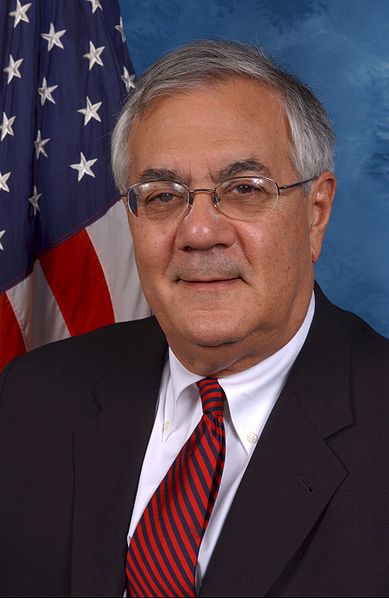merchant financing
PayPal: Our merchants grow after taking a business loan from us
February 5, 2025 PayPal is feeling optimistic about its business loan program now that it has been reset on a path toward growth. “As the business matures, PayPal Business Loan offers more traditional merchant financing to match the increasing complexity and multichannel nature of larger businesses,” said CEO Alex Chriss during the Q4 earnings call. “Our business financing solutions increase loyalty and engagement, driving the PayPal flywheel. Merchants typically increase their PayPal volume by 36% after adopting PayPal Working Capital and 16% after taking a PayPal Business Loan. Our merchant lending originations were $3 billion in ’24, demonstrating our leadership and that there’s plenty of room to grow to support our customers.”
PayPal is feeling optimistic about its business loan program now that it has been reset on a path toward growth. “As the business matures, PayPal Business Loan offers more traditional merchant financing to match the increasing complexity and multichannel nature of larger businesses,” said CEO Alex Chriss during the Q4 earnings call. “Our business financing solutions increase loyalty and engagement, driving the PayPal flywheel. Merchants typically increase their PayPal volume by 36% after adopting PayPal Working Capital and 16% after taking a PayPal Business Loan. Our merchant lending originations were $3 billion in ’24, demonstrating our leadership and that there’s plenty of room to grow to support our customers.”
PayPal offers this product in the US, Germany, France, the Netherlands, UK, and Australia.
“The PayPal Working Capital product allows businesses to access a loan or cash advance for a fixed fee, based on their annual payment volume processed by PayPal,” the company states. “The PayPal Business Loan product provides businesses with access to short-term financing for a fixed fee or interest based on an evaluation of the applying business as well as the business owner. In the U.S., these products are provided under a program agreement with an independent chartered financial institution.”
Between them, PayPal is one of the largest online business lenders in the US.
What Would Barney Frank Say?
July 16, 2014While crowd funders navigate the JOBS Act and a possible revision to what constitutes an accredited investor, non-bank business lenders are raising eyebrows with sky high interest rates. Annual Percentage Rates (APRs) are reaching into the triple digits and critics are reaching for their megaphones to say something about it.
Unfortunately APRs don’t spell out the true dollar for dollar cost, a flaw pointed out by OnDeck Capital CEO Noah Breslow in regards to daily amortizing loans. In the June Access to Capital Small Business Panel, Breslow explained that a 60% APR loan could actually only cost 15% on a dollar for dollar basis over 6 months simply because of daily amortizing.
Still, the figures make for enticing headlines and it is to be expected that they will come under greater public scrutiny as time goes on.
In an opportunity I got to speak one-on-one with former Congressman Barney Frank in June, he offered some pretty interesting thoughts on the governance of business to business transactions.
 Frank, who was the key author of the Dodd-Frank Wall Street Reform and Consumer Protection Act that was signed into law in 2010, was a longtime champion of consumer financial protections. But he sings a different tune when it’s all about business. Many people may not realize that he opposed the Durbin Amendment of the Dodd-Frank Act, the addition that placed caps and restrictions on debit card interchange fees. Federal restrictions on how much a business can charge another business? Not his thing…
Frank, who was the key author of the Dodd-Frank Wall Street Reform and Consumer Protection Act that was signed into law in 2010, was a longtime champion of consumer financial protections. But he sings a different tune when it’s all about business. Many people may not realize that he opposed the Durbin Amendment of the Dodd-Frank Act, the addition that placed caps and restrictions on debit card interchange fees. Federal restrictions on how much a business can charge another business? Not his thing…
Unsurprisingly then when I asked him if he’d be in favor of a federal cap on business loan interest rates, he sternly replied, “no.” He went on to say that he supported transparency in business loan transactions, such that the borrower should be easily able to identify the terms, but that the premise behind consumer loan protections was that consumers were less sophisticated.
Curiously, there are a few states that impose caps on commercial interest rates, making the regional landscape for high rate business lenders a little bit tricky. In a recent publication by financial law firm Hudson Cook, they spelled out federal laws that already govern business loans.
To date there has been no legislative activity related to merchant cash advance or alternative business lenders. If such discussion did arise though, it’s ironic to say that one of the most liberal congressmen of the last decade, a man who wrecked Wall Street, would stand to make an excellent champion of the alternative business lending cause.
I never thought I’d say this, but too bad the guy retired.
Access to Capital – A Dose of Reality
June 15, 2014So much for a lack of transparency… While sitting directly next to Maria Contreras-Sweet, the head of the Small Business Administration, OnDeck Capital’s CEO corrected U.S. Senator Cory Booker’s comments about the APR of their loans. High teens? Not so, said Noah Breslow who explained their average 6 month loan has an APR of 60% even while costing only 15 cents on the dollar.
Why is access to capital so expensive? Rob Frohwein, the CEO of Kabbage said that up until recently his company was borrowing funds at a net rate of more than 20% APR. In order to turn a profit, they had to lend at a rate much higher than that.
Great info about democratizing #Access2cap for #smallbiz w/ @CoryBooker @RutgersU. More info @SBAgov pic.twitter.com/qxCu2tbW4z
— Maria ContrerasSweet (@MCS4Biz) June 13, 2014
.@rohitfounder and Sen. @Corybooker at Access to Capital New Jersey #Access2cap pic.twitter.com/FRfoAH2CjU
— Biz2Credit (@biz2credit) June 13, 2014
The Access to Capital small business panel included:
Maria Contreras-Sweet – Head of the U.S. Small Business Administration
Noah Breslow – CEO, OnDeck Capital
Rohit Arora – CEO, Biz2Credit
David Nayor – CEO, BoeFly
Rob Frohwein – CEO, Kabbage
Paul Quintero – CEO, Accion East
Rohan Matthew – CEO, Intersect Fund
Jonny Price – Senior Director, Kiva Zip
Jeff Bogan – SVP, LendingClub
Steve Allocca – Global Head of Credit, PayPal
Jay Savulich – Managing Director of Programs, Rising Tide Capital
The Real Impact on Small Business
May 22, 2014 It’s not easy being in the lending business. Just talking about money can make people uncomfortable. Bringing up how much money you have, don’t have, or wish you had is like bringing up politics at Thanksgiving dinner. It’s taboo in this society. It’s even rude to ask somebody how much they make a year. That’s one of two reasons why being a lender or loan broker is so difficult, you’re forced to dive head first into emotionally charged waters.
It’s not easy being in the lending business. Just talking about money can make people uncomfortable. Bringing up how much money you have, don’t have, or wish you had is like bringing up politics at Thanksgiving dinner. It’s taboo in this society. It’s even rude to ask somebody how much they make a year. That’s one of two reasons why being a lender or loan broker is so difficult, you’re forced to dive head first into emotionally charged waters.
The second reason is telling an applicant ‘no’. It feels personal even if it’s not. “It’s just business,” the bearer of bad news will say, but it never feels that way. I know that firsthand through my experience as both a broker and an underwriter. Rejection is a painful experience for an applicant no matter how professional they are.
But sometimes you get to tell an applicant ‘yes’ and that can be an emotionally moving experience as well. Looking back, the only applicants I ever heard cry were the ones that got approved. Some of those approvals were expensive but they were given an opportunity in a world where up until that point, no one was willing to give them any opportunity at all. They were the forgotten businesses of America.
PayPal’s VP of SMB Lending recently said that he feels “blessed to be serving this higher need.” Blessed was an interesting word choice. Being able to support small businesses doesn’t just make him feel happy or hopeful or satisfied, it makes him feel blessed.
What is the real impact that alternative financing companies have on small businesses? Thanks to the funding companies who took the time to find out. Today, we can see for ourselves:
Above is just a small handful of the testimonials you can find on the websites of CAN Capital, Kabbage, RapidAdvance, Fora Financial, and Merchant Cash and Capital. Real businesses, real stories, real impact.
And there you have it…
Big Deal #2 Struck in MCA Industry
May 21, 2014 Another day, another capital raise for some company or other involved in alternative business lending. That’s the way it is these days, but the news about the American Finance Solutions (AFS)/CapFin Partners deal announced on Wednesday is markedly different.
Another day, another capital raise for some company or other involved in alternative business lending. That’s the way it is these days, but the news about the American Finance Solutions (AFS)/CapFin Partners deal announced on Wednesday is markedly different.
It’s the Rockbridge Growth Equity (RGE)/RapidAdvance deal all over again, the welcoming of a major MCA company into a wider lending family. Though the release does not specify the amount of equity CapFin Partners acquired in the transaction, nor any valuation figure, the headline literally says it’s significant.
CapFin Partners is also a significant investor in Contintental Business Credit (CBC), an asset-based lender that’s been in operation since 1989. The CapFin deal will bring AFS and CBC together strategically. As said in the release, “the union of these two financial lending companies will widen the portfolio of services offered, which now include merchant cash advances, factoring and asset based loans.”
The design is strikingly similar to the RapidAdvance/RGE deal.
AFS/CapFin
The investment and close relationship with CBC will provide operational expertise, a diversified client base and a larger pool of capital for funding customers
RapidAdvance/RGE
By aligning with Rockbridge, we will leverage our new relationship with its portfolio of companies, bringing best practices and expertise to nearly every aspect of our business.
Both funders were founded in the pre-recession era, giving investors a chance to review performance and returns both through good times and bad.
Two years ago I predicted that “MCA will simply assimilate into other financial products.” As is the case with these two deals, it’s already becoming just one product out of many offered by financial institutions. Elsewhere in the industry, MCA companies are offering true loans to stay competitive and some funders are passing on MCA completely to focus just on traditional business loans with terms up to 10 years and traditional interest rates.
The AFS deal proved yet again though that there is a market to buy (or buy into) established reputable merchant cash advance companies. That should give hope to new funders that are trying to formulate a long-term exit strategy.
Congratulations to American Finance Solutions.
Would an APR Help?
May 14, 2014Merchant cash advance industry hater Ami Kassar added to his collection of rants today in the Wall Street Journal by writing about the True Costs of Cash-Advance Loans.
Bloomberg BusinessWeek writer Pat Clark, knowing full well that Kassar and I have sparred online, tweeted:
curious what @financeguy74 thinks RT @akassar: The true cost of cash advance loans: my latest @wsj column http://t.co/BjyqMgM8Uz
— Patrick Clark (@pat_clark) May 14, 2014
 My response:
My response:
Do I think merchant cash advances when structured as loans should include a prominently displayed APR on the contract?: Yes, though I believe this is less helpful than the dollar for dollar cost explanations that are already presented. But in the name of maximum transparency, it would be a good thing to have on there.
Do I think less business owners would use such loans if the APR was prominently displayed?: No
If DealStruck can make their model work, then great. What I want to know is, what happens to the businesses they won’t approve?
Securitization Begins in Alternative Business Lending
May 1, 2014 It’s official, alternative business loans can now be pooled up and sold off to investors. On Wednesday, OnDeck Capital announced a $175 million transaction made possible by issuing fixed rate notes backed by their loans.
It’s official, alternative business loans can now be pooled up and sold off to investors. On Wednesday, OnDeck Capital announced a $175 million transaction made possible by issuing fixed rate notes backed by their loans.
Their Class A notes were rated BBB by DBRS while the Class B notes received a BB.
According to DBRS, BBB grade are of “Adequate credit quality. The capacity for the payment of financial obligations is considered acceptable. May be vulnerable to future events.”
BB grade are “Speculative, non-investment grade quality. The capacity for the payment of financial obligations is uncertain. Vulnerable to future events.”
While it’s popular to refer to alternative business lending as highly speculative and fraught with risk, it’s notable that a highly respected ratings agency would not officially bestow OnDeck’s loans with a label to match that. A single B would’ve signified a highly speculative investment and CCC, CC, and C would signal danger. But OnDeck’s Class A notes are up to snuff as investment-grade level material.
OnDeck has been dogged by critics over the last few years, most of whom are their competitors. The argument goes that their practice of undercutting the rest of the industry on rates is doomed to fail. Those theories are bolstered by the very public knowledge that they have yet to turn a profit. Back in March, CEO Noah Breslow was quoted in the Wall Street Journal as saying they were “imminently profitable“, an optimistic yet openly ambiguous indicator of where they stand. Since they are not a publicly traded company, they are not required to disclose their financial statements.
While DBRS serves to validate OnDeck’s policies and approach, word that they had achieved “investment-grade” status did little to pacify their critics. Yet, for a company that places a remarkably heavier focus on credit modeling and technology infrastructure than the majority of their peers, there is always the possibility that OnDeck is actually as smart as they want everyone to believe. Four months ago it was reported that “fifty-six of their 225 employees have backgrounds in math, statistics, computer science, or engineering.” Contrast that with some of the small and mid-sized players that are largely focused on ISO recruitment and sales.
While I haven’t seen a prospectus in its entirely, I’ve learned there are quite a few ground rules in place for these notes. For one, these loan pools have to be diversified. That means no secretly packaging up all the loans in a risky zip code in Nevada and selling them off as a BBB rated note. There are concentration limits in place to reduce risk. Below are the maximum thresholds allowed in a pool based on their location:
Obligor Located in California 20.0%
Obligor Located in Florida 15.0%
Obligor Located in New York 15.0%
Obligor Located in Texas 15.0%
Obligor Located in Any Other State 10.0%
 If a concentration limit is exceeded, the issuer is required to maintain additional credit enhancement. I’m not surprised at all that California, Florida, New York, and Texas are singled out. In addition to being among the most populous in the country, they are the heaviest users of alternative business loans and merchant cash advances. There’s also the theory that Floridians are statistically the least likely to repay a loan, as openly discussed in The Joy of Redlining, a controversial assessment borne out of the peer-to-peer lending crowd.
If a concentration limit is exceeded, the issuer is required to maintain additional credit enhancement. I’m not surprised at all that California, Florida, New York, and Texas are singled out. In addition to being among the most populous in the country, they are the heaviest users of alternative business loans and merchant cash advances. There’s also the theory that Floridians are statistically the least likely to repay a loan, as openly discussed in The Joy of Redlining, a controversial assessment borne out of the peer-to-peer lending crowd.
There are other concentration limits to adhere to such as the OnDeck Score range (not FICO score range), size of the outstanding principal, industry type, and repayment time frame.
Notably, recognition and acceptance of the proprietary OnDeck Score in concentration limits is a major achievement for them. Breslow previously referred to the OnDeck Score as “the Main Street equivalent of FICO” in American Banker.
Additionally, OnDeck’s reliance on ISOs/brokers for originations is shrinking. In 2013, their direct marketing channel accounted for 43% of their deal flow, compared to only 12% back in 2010. This is a step in the right direction for them financially as broker commissions are on the rise. Increasing the direct marketing percentage will serve as a hedge against increasing third party origination costs.
So what’s next?
For now, OnDeck Capital can enjoy the liquidity gained through securitization and focus on more important things like growth and profitability. Profits are a must in the current IPO environment. Payment company Square had their IPO hopes dashed when word of their losses were leaked to the Wall Street Journal. That came as a shock to the general public. Meanwhile everybody already has an idea of where OnDeck stands, sort of. They’re either brilliant or doomed to fail. I’d say an independent assessment that they’re capable of issuing investment grade notes, increases their odds of brilliance.
Whatever your feelings, they have set a powerful precedent for secuitization. As these notes were reportedly oversubscribed, investors will be looking to their competitors for a taste. OnDeck just whet the appetite. Additional securitization in this industry could be right around the corner. One might say it’s… imminent.
What if there were Trigger Leads?
April 27, 2014 Just recently, a user in DailyFunder’s forum complained that a deal of his had been poached by a competitor. There’s nothing new about that story, but it is what followed that drew interest. He was in the process of renewing his client for additional funds, when out of the blue popped up a competitor that called his client to tell them not to sign the contract they had in their hands until they heard his better offer.
Just recently, a user in DailyFunder’s forum complained that a deal of his had been poached by a competitor. There’s nothing new about that story, but it is what followed that drew interest. He was in the process of renewing his client for additional funds, when out of the blue popped up a competitor that called his client to tell them not to sign the contract they had in their hands until they heard his better offer.
As it was suspiciously timed and curiously specific, he decided to reach out to the alternative lending community for their thoughts. One possible conclusion offered was that the competitor was being fed trigger leads.
Trigger leads?????????????????
Forget UCCs folks. UCCs detail transactions that have already happened and we’ve all seen what they’ve done to the merchant cash advance and alternative business lending industry. Companies are scared to file them now. But what if all of your competitors were notified every time one of your deals was submitted to underwriting? You get the app signed, you submit the file, and the next day 10 companies have called your client to offer them a better deal on funding than whatever terms you were about to offer. What gives?
Popular in the mortgage industry, the credit bureaus can actually sell credit inquiry data to lenders. So imagine every time credit gets pulled on a deal, the merchant’s info is sent out to your competitors for a fee.
Dave Sullivan explains Trigger leads below:
There was no way to tell for sure if that was what happened in this situation, and I’ve yet to hear of trigger leads being used in the alternative business lending industry but if someone was getting them, I’m sure they’d want to keep their source top secret.
Can you imagine what kind of chaos would ensue if this became commonplace in our industry?
😉





























